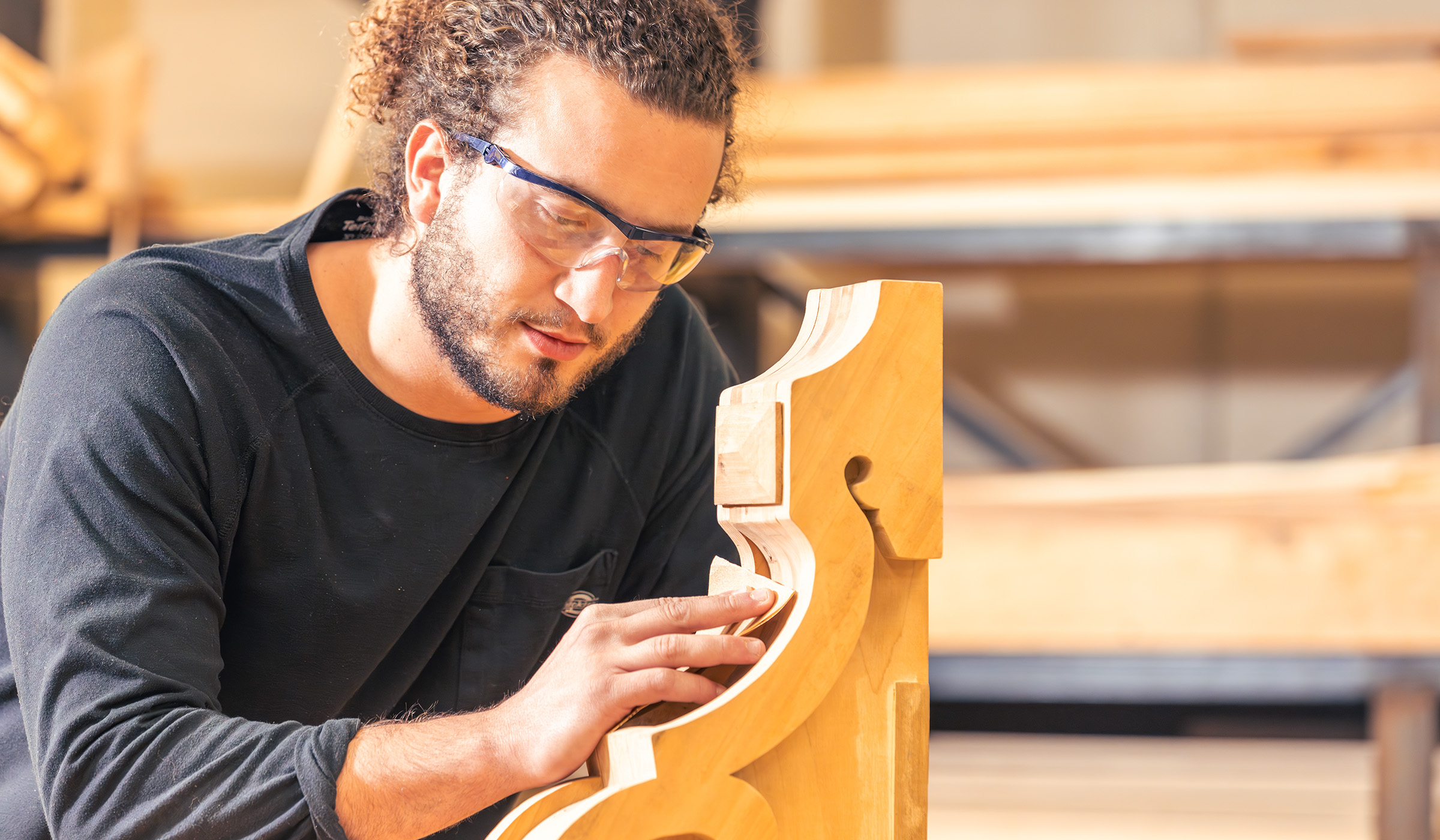Building Preservation/Restoration 2+2 Options
Learn by doing in this nationally recognized program.
You’ll study technical and traditional historic preservation in a real-world setting. This isn’t sitting at a desk. It’s learning by doing. You’ll spend most of your time in workshops and job sites learning the fundamentals of historic trades and how to restore historic materials and building systems.
Armed with theoretical knowledge, hands-on skills and a passion for their craft, many of our graduates have gone on to the Historic Preservation Training Center in Frederick, Maryland, where they work on sites of national importance across the country, including Arlington National Cemetery, Independence Hall, and The White House.
Apply Now Suggested Class Sequence
What you’ll learn
- Learn the technical side of historic preservation as well as the traditional trades.
- Understand the materials, concepts and techniques used in preserving historic buildings.
- Gain a basic architectural vocabulary.
- Work with traditional and modern building materials, learning how they deteriorate and how to stabilize and repair them.
- Sharpen your skills in workshops and on-site.
- Construct and repair stained-glass windows, wooden windows & doors, plaster cornices and medallions, and more.
Possible careers
- Traditional tradesperson
- Pursue an advanced degree in art, architecture, architectural history, history, historic preservation, or planning
- State preservation offices and statewide non-profits
- Preservation specialist in historic house museums such as Mount Vernon, Monticello, Stratford Hall, and Fallingwater.




